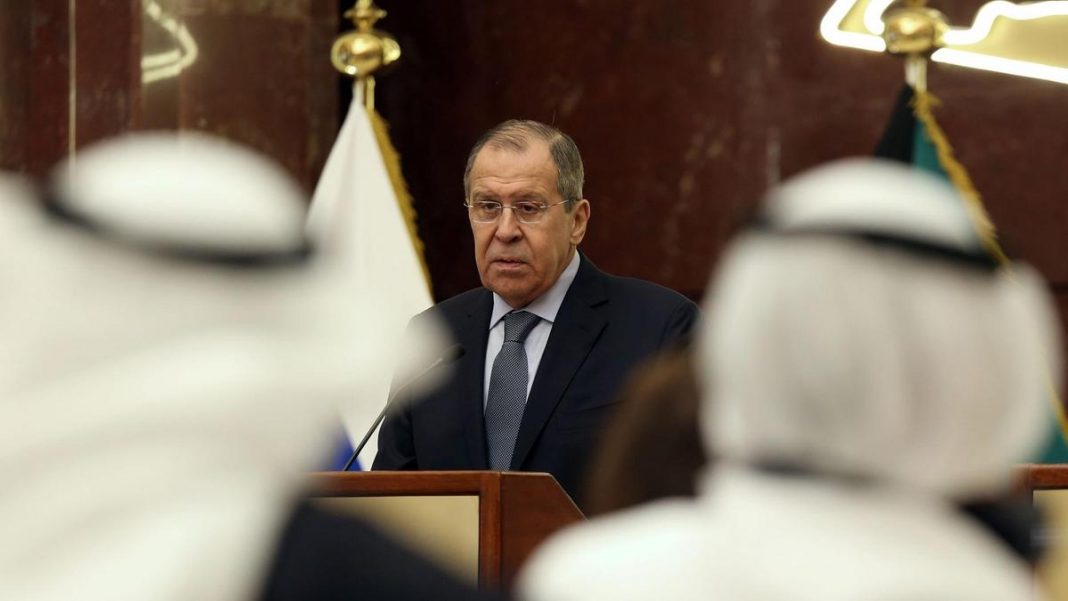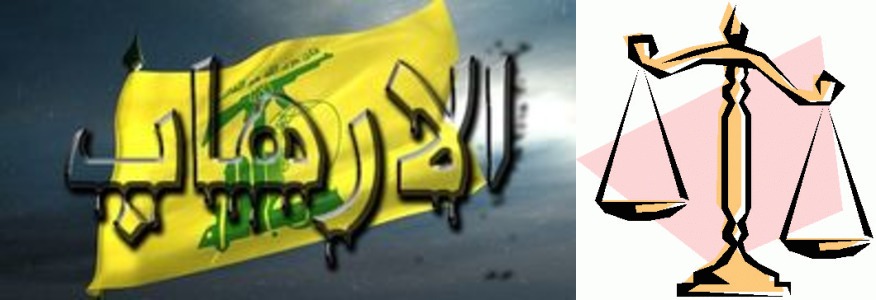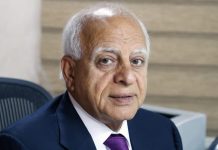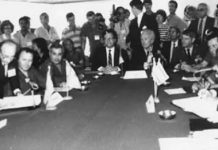The US and Russia are playing a game of weapons diplomacy in the Middle East
Raghida Dergham/The National/March 09/19
ديبلوماسية التسليح والتسلّح في الشرق الأوسط
راغدة درغام/09 آذار/19
States no longer have to choose between western and Soviet armaments – as a result, the political value of arms deals has soared
The arms race between the US and Russia took a Middle Eastern turn this week in the Gulf and Turkey, highlighting an emerging weapons diplomacy in an era of dangerous improvisation that has replaced conventional long-term policy planning. The fallout from the collapse of the INF treaty, signed between Washington and Moscow in 1987, has expanded, and now the race to sell arms to the Middle East has become more important for both powers than resolving the region’s conflicts. As a result, the prospects for ending wars are declining with the odds for further destabilisation in the region increasing at the same time. It is an era of “transitional diplomacy”, as one expert on US-Russian relations put it. The preference is not for statecraft of the pre-emptive, personal or multilateral variety, but of the kind that tests boundaries and red lines as it marches towards the brink.
This week, Russian foreign minister Sergei Lavrov made a tour of the Arabian Gulf region, and seemed to focus on arms exports and luring investments in Russia, with little effort made to propose serious initiatives to resolve the region’s conflicts. According to one familiar source, Mr Lavrov did not bring with him any ideas regarding the Israeli-Palestinian conflict or the stand-off between the Gulf and Iran. Although he reiterated the Russian position that the Syrian regime must be readmitted into the Arab League, which was snubbed in the Gulf, his tour was not about Syria, but mainly about bringing in hard currency for Russia.
Mr Lavrov’s stop in Saudi Arabia had special characteristics that covered oil, politics, and armaments, in light of indications suggesting that Riyadh wants to acquire from Moscow the S-400 missile defence system if the US sale of the THAAD system is blocked. The US system is twice as costly as the Russian-made one, which makes the latter an obvious alternative for the Saudis. If the US Congress blocks the deal with Saudi Arabia and President Trump does not veto its decision to protect wider arms deal with Riyadh over the next two decades, Saudi Arabia will not hesitate to seek alternatives in the East.
Today, with the advancements in defence technology around the world, there is no need to adhere to a single doctrine as had been required during the Cold War, when states had to choose between western and Soviet equipment. As a result, the political value of arms deals has soared. Moreover, the ability to diversify defence sourcing has given importers an important margin for manoeuvrability within the grander geopolitical and strategic equation.
Mr Lavrov’s visit comes in this context, as Saudi Arabia explores alternative markets, including China. The US is not oblivious to this, and most likely will not renege on the massive deal with Saudi Arabia. However, the hint by the kingdom that it wants to diversify has encouraged Moscow to jump at the opportunity.
The arms race between the US and Russia is very costly, especially for Russia. As for the arms race in the Middle East, its financial and strategic revenues are immense, not just in the Gulf but also in Turkey, where the equation between the Russian S-400 system and the US F-35 has different dimensions.
The US State Department this week told Turkey that if it goes ahead with the S-400 deal, then Washington will have to reconsider Ankara’s participation in the F-35 program and the transfer of other US defence equipment.
Turkish president Recep Tayyip Erdogan has said Turkey will not back away from the deal, and suggested that Ankara could participate in producing the system and may also consider the S-500 system afterwards, rejecting US threats of sanctions. Such escalation will have consequences, not just for US-Turkish relations, but also Turkey’s status in the Nato alliance.
Bringing Russia in to the heart of Nato will be unacceptable to Washington and western European capitals, regardless of Ankara’s assertions
President Trump has now backtracked from his pledge to withdraw US troops from Syria, which he announced in a now-infamous tweet that undermined US credibility. Mr Trump endorsed a letter from Congress that gave US forces in eastern Syria a fourth mission in addition to fighting ISIS, confronting Iranian plans, and guaranteeing US interests in the political process there. The letter said that US and European presence in eastern Syria aims to “help prevent conflict between our Nato ally Turkey and the Syrian Democratic Forces that have been central to the counter-ISIS campaign”. In other words, Turkey will not be allowed to crush the Kurdish-led SDF or use Syria to implement its agenda on the Kurdish question. This is a small victory secured by Congress for the Kurds who had been let down by Mr Trump’s tweet. Broadly, this is a victory for the US establishment against the administration.
Senior US administration officials have visited Turkey and Lebanon on the eve of Secretary of State Mike Pompeo’s tour of the region, sending a number of signals regarding American priorities. These certainly include marketing US arms in the Middle East. At this juncture, the main American message contains the following broad lines: first, continued distrust in Russia amid rivalry at the levels of weapons exports, strategy, and geopolitics; second, containing Iran especially economically, reflecting an irreversible US strategic decision that includes containing Hezbollah and its allies in Lebanon; third, firmly telling Turkey that its actions in Syria and relations with Russia are not immune to consequences.
US assistant secretary of state for Near Eastern affairs David Satterfield visited Lebanon this week ahead of Mr Pompeo’s visit, carrying warnings to Lebanese parties to take seriously the US determination to dry out Hezbollah’s revenue streams and prevent Hezbollah’s attempts to use its government portfolios to offset US measures and find alternative sources of funding.
The US message, echoed by Britain’s minister of state for the Middle East Alistair Burt, is that there is less wriggle room now to accept Lebanon’s “particular” position with regard to Hezbollah. Western powers are fed up with Lebanon’s dithering on difficult decisions, or its pretexting of “resistance” as cover for its state within the state of Lebanon. Now, Britain has joined the US in blacklisting both of Hezbollah’s political and military wings, and the US has signalled to Lebanon that its patience is running out, but that it is ready to support its economy and stability if it makes the right choices.
Mr Satterfield did not meet with President Michel Aoun. That snub highlights the tense relations between the US administration and the president and leaders in his Free Patriotic Movement, led by Mr Aoun’s son-in-law and foreign minister Gebran Bassil. The FPM remains a close ally of Hezbollah, and Mr Bassil seems to think that he can weather the US containment targeting his faction and Hezbollah.
Washington believes that Mr Aoun continues to give political cover to Hezbollah’s extrajudicial arms, clearly undermining the sovereignty of the Lebanese state and the standing of its national army. Washington believes that Mr Aoun is also protecting Hezbollah from US accountability, turning a blind eye to the group’s violation of Lebanon’s declared policy of neutrality in Syria by intervening militarily alongside its regime there.
In other words, Washington sees Mr Aoun and Mr Bassil as implementing Hezbollah’s agenda in many places, as well as protecting Hezbollah, and there will be serious consequences for this.
An upcoming visit by President Aoun to Moscow is also being watched by the US – not because Lebanon is a valuable strategic asset in the US-Russian arms race or geopolitical rivalry, but because of the Iranian and Syrian agenda in Russian-Lebanese talks, and Moscow’s interest in displacing Washington in arming the Lebanese army.
https://www.thenational.ae/opinion/comment/the-us-and-russia-are-playing-a-game-of-weapons-diplomacy-in-the-middle-east-1.835035
ديبلوماسية التسليح والتسلّح في الشرق الأوسط
راغدة درغام/09 آذار/19
انعطف سباق التسلح بين الولايات المتحدة وروسيا على منطقة الشرق الأوسط في محطة تركية وأخرى خليجية، وتقاطعت الديبلوماسية السياسية مع بيع السلاح وشرائه في زمن الارتجالية الخطيرة التي حلّت مكان السياسة المخطّط لها لزمن بعيد. آفاق إلغاء معاهدة الصواريخ النووية المتوسطة المدى التي وقّعتها واشنطن وموسكو عام 1987 اتّسعت بعدما تم تجميدها من قبل العاصمتين، ومعها بات السباق على التسليح في الشرق الأوسط أكثر أهمية لهما من إيجاد حلول للمشاكل والنزاعات الاقليمية. لهذا انحسرت احتمالات وامكانيات ايقاف الحروب وازدادت حظوظ اللاّاستقرار في الشرق الأوسط. انه زمن “الديبلوماسية الانتقالية” حسب تعبير خبير مخضرم في العلاقات الأميركية – الروسية، حيث الأفضلية ليست للديبلوماسية الوقائية ولا للديبلوماسية الشخصية ولا للديبلوماسية المتعددة الأطراف وإنما هي لديبلوماسية اختبار الأعصاب بالاقتراب أكثر من الخط الأحمر.
هذا الأسبوع، قام وزير الخارجية الروسي سيرغي لافروف بجولة خليجية كان لها نكهة تصدير السلاح واستيراد الاستثمار بعيداً عن مبادرات جدّية لحلول أساسية للنزاعات الإقليمية. فهو، حسب مصدر مطّلع، لم يأتِ بمبادرة حول النزاع الإسرائيلي – الفلسطيني أو في شأن الخلاف الخليجي مع الجمهورية الإسلامية الإيرانية. حمل معه رسالة العزم الروسي على ترسيخ النظام في دمشق والرغبة في إعادة تأهيله عربيّاً، وسمع الجواب. إنما جولته لم تكن لأسباب سورية بل ان القاسم المشترك في جميع محطاته كان تسويق السلاح واستدعاء الاستثمار – وعنوان كلاهما هو العملة الصعبة.
المحطة السعودية في جولة لافروف لها خصوصيتها، نفطياً، وسياسياً، وتسلّحاً، سيما في ضوء مؤشرات على تفكيرٍ في الرياض في شراء منظومة S-400 الروسية لاعتراض الصواريخ الباليستية في حال عرقلة شراء منظومة “ثاد” الأميركية لاعتراض الصواريخ المتوسطة والقصيرة المدى. كلى المنظومتين متطوّر. كلفة “ثاد” ضعف كلفة S-400 مما يجعل المنظومة الروسية بديلاً واضحاً أمام السعودية في حال لم تمضِ واشنطن في بيع المنظومة الأميركية. فإذا أوقف الكونغرس الصفقة ولم يستخدم الرئيس دونالد ترامب صلاحية الفيتو الرئاسي من أجل المضي بعقود التسلح مع السعودية بقيمة 110 مليون دولار في العقدين المقبلين، لن تتردد السعودية في القفز من سلاح الغرب الى سلاح الشرق.
فاليوم، ومع التطوّر التكنولوجي في السلاح، لا لزوم للتقيّد بعقيدة واحدة دون غيرها كما كان الأمر في زمن الحرب الباردة حين كان على الدول الاختيار بين السلاح الغربي والسلاح السوفياتي. وبالتالي، ازدادت القيمة السياسية لصفقات التسلح علماً انها منذ البداية لم تكن عقوداً تجارية محضة أساساً. ثم ان القدرة على التنوّع في الترسانة العسكرية أعطى الدول التي تستورد السلاح هامشاً مهمّاً في المعادلة الاستراتيجية والجغرافية – السياسية. فالسلاح سلعة مُكلفة جداً وثمينة جداً في موازين العلاقات، والمشتري لم يعد حصراً تحت رحمة البائع.
من هنا، أتت زيارة لافروف في خضمّ التجوّل السعودي في أسواق الخيارات المفتوحة البديلة عن السوق الأميركي، بما فيها سوق الصين. الولايات المتحدة ليست جاهلة بما يحدث ولذلك، الأرجح أنها لن تتراجع عن صفقة المليارات الضخمة مع السعودية. لكن مجرد الانفتاح على التنوّع من قِبَل السعودية، يرافقه قرار مشترك روسي – سعودي بتوطيد العلاقات الثنائية، جعل موسكو تقفز الى الفرصة المتاحة. فالسباق الثنائي على التسلح بين الولايات المتحدة وروسيا مكلف جداً بالذات لروسيا، أما السباق على التسليح بالذات في الشرق الأوسط، فإن مردوده نقدي واستراتيجي في آنٍ واحد ليس فقط في المنطقة الخليجية، وإنما أيضاً في تركيا حيث المعادلة بين منظومة S-400 وبين “أف-35” لها أبعاد مختلفة.
وزارة الخارجية الأميركية أبلغت هذا الأسبوع تركيا أنها إذا مضت في شراء منظومة S-400 الروسية فإن واشنطن ستضطر الى اعادة النظر في مشاركة أنقرة في برنامج الطائرة المقاتلة “أف-35” وفي احتمال تسليم أسلحة أخرى الى تركيا في المستقبل.
الرئيس التركي رجب طيب أردوغان أكد أن تركيا لن تتراجع عن الصفقة وقال “سنبدأ الانتاج المشترك، ويمكن أن ندخل بموضوع منظومة S-500 بعد S-400″، رافضاً التهديدات الأميركية بفرض عقوبات. مثل هذا التصعيد سيكون له تبعاته بشكل أو بآخر ليس فقط على العلاقات الأميركية – التركية وإنما أيضاً على وضع تركيا في حلف شمال الأطلسي (الناتو) الذي تنتمي اليه.
إدخال روسيا الى عقر دار الناتو لن تتقبّله واشنطن ولا عواصم أوروبية مهما قالت تركيا ان S-400 لا يتعارض مع عضويتها في الناتو بحجة ان هذه الصواريخ لن تُدمَج في منظومة الحلف. أردوغان رفض المقترحات البديلة عن S-400 مثل بيع واشنطن لأنقرة نظام “باتريوت” للدفاع الصاروخي والتي يقول الأتراك أنه أغلى بكثير من المنظومة الروسية. تداعيات العناد التركي والإصرار الأميركي ستؤثّر في الاقتصاد في تركيا وقد بدأت ملامحها تظهر في اعلان واشنطن نيّتها إنهاء المعاملة التجارية التفضيلية لتركيا، كما قد تؤثر في موازين العلاقة الأميركية – التركية في ساحة القتال في سوريا.
الرئيس دونالد ترامب عاد، مرة أخرى، عن تعهّده بإخراج القوات الأميركية من سوريا وتراجع عن تغريدته الشهيرة التي قوّضت الصدقية الأميركية وسياسات إدارته معاً. وافق ترامب على رسالة لأعضاء الكونغرس أولت الى القوات الأميركية في شرق سوريا مهمّة رابعة اضافة الى محاربة داعش، وصد المغامرات الإيرانية، وضمان المصالح الأميركية في العملية السياسية. نصّت الرسالة على ان الوجود الأميركي والأوروبي في شرق سوريا يرمي الى “المساعدة في الحَيلولة دون نشوب الصراع بين تركيا، حليفتنا في حلف شمال الأطلسي، وبين قوات سوريا الديموقراطية التي اضطلعت بمكافحة داعش”. ترجمة هذا هي: أنه من غير المسموح لأنقرة سحق القوات الكردية أو استخدام ساحة سوريا لتنفيذ أجندة كردية في ذهن أنقرة. ترجمته ان القوى في الكونغرس انتصرت قليلاً للكرد بعدما خذلتهم تغريدة ترامب. والترجمة الأوسع هي انتصار منطق المؤسسة الأميركية establishment أو ما تسميه موسكو وغيرها بـ “الدولة العميقة” اشارة الى مزيج من نساء ورجال المخابرات والاقتصاد والمؤسسة العسكرية.
تحرُّك رجال الإدارة الكبار في تركيا ولبنان عشية جولة وزير الخارجية الأميركي مايك بومبيو في المنطقة بعث بمؤشرات حول الأولويات الأميركية والتي من ضمنها، بالتأكيد، تسويق البضاعة الأميركية في سباق التسليح في الشرق الأوسط – فالمردود المالي ضخم جداً الى جانب الأبعاد السياسية الفائقة الأهمية. الرسالة الأميركية الأساسية تبقى، في هذا المنعطف، ذات العناوين التالية: أولاً، استمرار الشكوك بروسيا مع استمرار التنافس معها تسليحاً واستراتيجياً وسياسياً. ثانياً، تطويق إيران بالذات اقتصادياً كقرار استراتيجي لا عودة عنه والتضييق على “حزب الله” وحلفائه في لبنان. ثالثاً، الحَزم مع تركيا كي يفهم الرئيس أردوغان أنه ليس فوق المحاسبة لا في داخل سوريا ولا في علاقاته مع روسيا – فهو المسؤول عن خياراته وفي مقدمتها خيار الرهان على موسكو ومغامرة الابتعاد عن حلف شمال الأطلسي.
عندما تحرّك مساعد وزير الخارجية لشؤون الشرق الأدنى، ديفيد ساترفيلد، في لبنان هذا الأسبوع تمهيداً لزيارة بومبيو، حمل في جيبه انذاراً للأطراف اللبنانية الحكومية والحزبية بأن عليها الأخذ بجدّية اعتزام أميركا تجفيف مصادر تمويل “حزب الله” ورفضها أية محاولات لاستخدام “حزب الله” وجوده في الحكومة للتعويض عن الإجراءات الأميركية ومن أجل إيجاد مصادر تمويل بديلة.
الرسالة الأميركية والبريطانية أيضاً والتي حملها وزير الدولة لشؤون الشرق الأوسط في وزارة الخارجية البريطانية اليستر بيرت هي ان هامش التفهّم لمقولة “خصوصية” الوضع في لبنان بات ضيّقاً جداً. فلقد سئم الغرب من اختباء اللبنانيين وراء أصبع “ما فينا” تبريراً لتحاشيهم القرارات الصعبة، أو إشهار بعضهم مبررات “المقاومة” كغطاء لتشريع انفصام “حزب الله” داخل الدولة وخارجها. بريطانيا التحقت بالموقف الأميركي مؤخراً إذ صنًفت “حزب الله” بشقّيه السياسي والعسكري في لائحة “الإرهاب”. والولايات المتحدة اتخذت قرار ابلاغ لبنان انها راغبة وجاهزة لدعم استقراره واقتصاده انما على قياداته ان تستوعب حدود الصبر معها.
عدم التقاء ساترفيلد برئيس الجمهورية ميشال عون عَكَس العلاقة المتشنّجة للإدارة الأميركية مع الرئيس نفسه ومع قيادات “التيار الوطني الحر” وفي مقدمتها وزير الخارجية جبران باسيل. والسبب هو وفاء عون لـ “حزب الله”، واستمرار اعتقاد باسيل ان في وسعه احتواء محاصرة الإدارة الأميركية له ولتياره ولـ “حزب الله”.
ترى واشنطن ان ميشال عون مستمر في اضفاء الغطاء السياسي على سلاح “حزب الله”، وانه يدعم “المقاومة” التي يشهرها “حزب الله” في تقويضٍ واضح وعلني لسيادة الدولة وصلاحيات الجيش. ترى واشنطن ان ميشال عون هو الذي يوفّر الحماية لـ “حزب الله” من المحاسبة ومن التطويق الأميركي له، وان الرئيس غضّ النظر عمداً عن انتهاكات “حزب الله” لمبدأ “النأي بالنفس” بالذات عبر تدخله عسكرياً في سوريا.
بكلام آخر، ان واشنطن تصنّف اليوم الرئيس عون والوزير باسيل بأنهما ينفّذان أجندة “حزب الله” في أكثر من مكان موجّهة الاتهام اليهما والى “التيار” بأنهم هم الذين يحصّنون “حزب الله” ويؤمّنون له القدرة على الزعم بأنه القوي، وان لكل ذلك تداعيات وعواقب جدية تطال أكثر من جهة.
زيارة رئيس الجمهورية اللبنانية الى روسيا قريباً هي بدورها محط اهتمام أميركي ليس لأن لبنان سلعة استراتيجية قيّمة في السباق الأميركي – الروسي على التسلح أو في معادلات العلاقات الثنائية بين واشنطن وموسكو. السبب الرئيسي هو الأجندة الإيرانية والسورية في المحادثات الروسية – اللبنانية ورغبة موسكو أن تتنافس واشنطن في تسليح الجيش اللبناني.






















